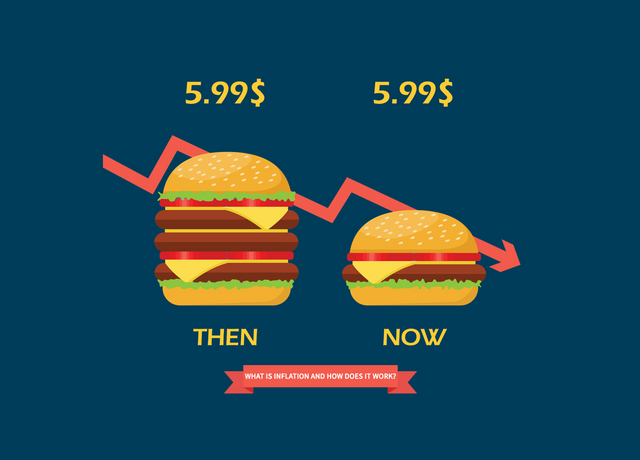
inflation is a word that we hear every day on the news. It is pretty clear that it plays an important role in the functioning of the world’s economy, but the actual meaning of this word along with what causes inflation remains a mystery to many people. A description of inflation and its various causes are provided below.
WHAT IS INFLATION?
Currency is a symbolic representation of buying power. It was first invented as a means to make commerce easier once trade began to be conducted over vast distances. If you take the dollar, for example, each dollar has a specific, fixed value. This value is what is referred to as buying power. Inflation is a term used to describe a decrease in overall buying power.
If you take the example of the dollar, in the year 1950, the dollar had a lot more buying power. You could buy an entire meal using just a single dollar. The value of the 1950 dollar was five times higher than the value of the current dollar. Hence, things that cost one dollar half a century ago cost five or six dollars now, which is the result of inflation.
CAUSES OF INFLATION
One of the biggest causes of inflation is an excessively high demand for certain goods. The price of goods on the market is determined by the comparison of their supply and demand. Goods that are not in demand will have low prices, and supply of such goods will slowly decrease until it meets the demand. The closer supply gets to demand, the higher the prices will be.
Inflation is often caused when the opposite of this phenomenon occurs. If a good is in high demand and supply cannot meet it, businesses raise their prices to capitalize on this opportunity. Since consumers need the goods in question, they would be willing to pay a higher price to obtain them. This decreases the value of currency since more is being used to buy the same goods, thereby resulting in rapid inflation.
Wage increase can also lead to inflation. Wages are directly related to the cost a company has to bear in order to manufacture its products. If, whether by federal ordinance or employee protests, a company is forced to increase wages, the cost of manufacturing will increase proportionally, resulting in increased prices for said goods in the market. This leads to the devaluing of the currency in the long run. Once again, more of it is required to buy the same thing, a sure sign of dropping buying power.
CONCLUSION
Inflation is an inevitability in capitalist economies. Although basic inflation is accepted as a part of how money works, rapid inflation due to unregulated markets or poor fiscal policies can be disastrous for a country’s economy and often results in financial collapse. An example can be seen in Zimbabwe, where rampant inflation left the country’s currency worthless with denominations going into billions and even trillions of currency units!
Read more: https://news.icostream.org/what-is-inflation-and-how-does-it-work/